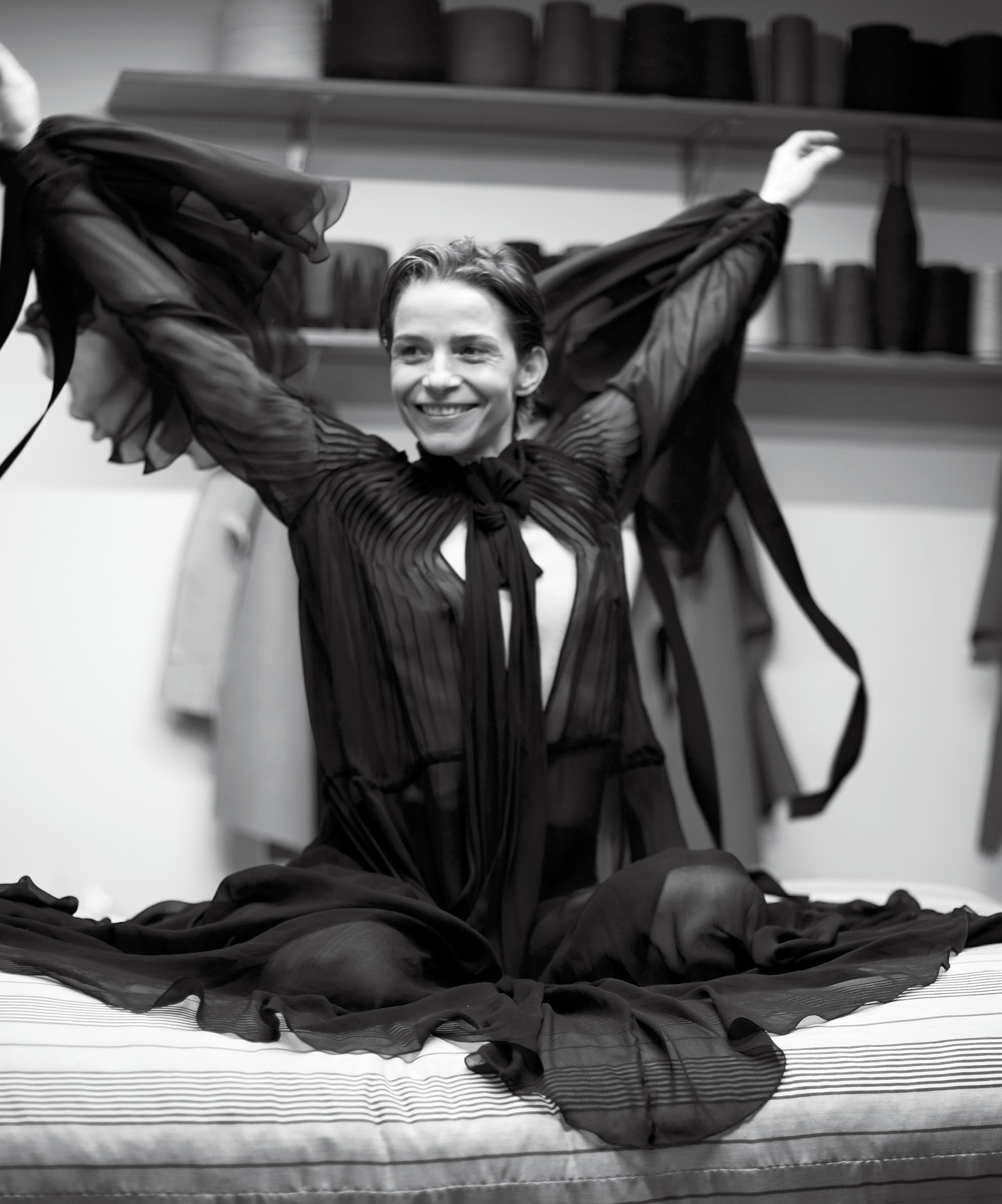The New Artist: Ana Prvacki Nominated by Marina Abramovic
Whether in Soviet Serbia or Silicon Valley, this artist is always present.
As the Discovery Issue, V117 features our cast of the latest and greatest ahead, as nominated by the cultural forces of now. This feature appears in the pages of V117, our Spring Preview 2019 issue, on newsstands today!
On a recent call from Brussels, the artist Ana Prvački was preparing to give a presentation on Ana Aslan, a Serbian physician whose anti-aging formula was so sought-after that John F. Kennedy and Elizabeth Taylor broke Cold War diplomatic norms to dab themselves with the miracle cream. “It would be the equivalent of flying to North Korea to get some anti-aging treatment,” says Pvrački. “I really like the idea that vanity is stronger than ideology.”
Pvrački herself demonstrates an impulse to break social contracts. In 2007 she “laundered money” in a UBS bank lobby, purifying bank notes with a wet-wipe one by one. Now working with Google on a top-secret app, she voices her skepticism of technology: “[The work] acknowledges the side effects of over-stimulating technology. I think everybody feels [it].”
Like that of Cindy Sherman or Yoko Ono, Pvrački’s practice meets society’s glare head-on. (See: the performance piece DIY Chivalry, in which Pvrački disrobes as a form of reverse-chivalry).Prvački showed gumption from an early age—even as a chronically ailing child living between Serbia and Romania: She says she was cured of her mysterious sickness when, after discovering the flute, she willed herself to be well enough to take lessons. “You cannot start it until you’re ready; until your mouth and teeth are formed,” she says.
While she no longer plays, the instrument has informed her artistic sensibility—that of a Pan-like trickster, dancing in the margins. “In Greek mythology, the flute is very much about the half human, half animal—a sexy beast, in a way, and in the Hindu mythology, Krishna is the flute player. There’s always this connection between sound and creation, but I think there’s a lightness to it. And [that’s] the reason I was so enamored by it.”
But if a bedridden child in Romania (Dracula’s birthplace, after all) who finds a flute to cure her illness sounds fairytale-esque, the villain of Pvrački’s early life was the country’s dictator, Nicolae Ceaușescu. “Ceaușescu was kind of insane,” says Pvrački of the communist despot. “He was a hardcore dictator.” Pvrački was raised in a bohemian haven. “I always joked that I had no choice but to be an artist. Both of my parents were artists and they would have disowned me [otherwise],” she says.
Pvrački recalls Serbia, then called Yugoslavia, fondly: “Instead of heads-of-state, they put female peasants on the currency.” But Soviet Europe proved less than a feminist utopia; when Pvracki’s father spoke out against nationalism, the family fled for the capitalist waters of Singapore. “In a funny way, my home is Singapore. And in some ways I feel really Singaporean,” she says—although she doesn’t identify strongly with any one nation. “Someone once asked me at a party what my mother tongue was, and I said, ‘Oh I don’t have a mother tongue; I was raised bisexual,’” Pvrački laughs. “I meant bilingual, but I’ve always liked the idea—the ‘bisexual mother tongue.’ That’s [mine].”
These tensions—between male and female, collapse and creation—run throughout Prvački’s work, from a wearable air-filtration system she co-created in 2018, to ‘Penis bonus pax in domus‘, in which she rings dildo-shaped bells to reenact the Roman myth of a spellbinding phallus.
Pvrački’s knack for balancing tension and whimsy has drawn fans like fellow Serbian Marina Abramović, who selected a variation of Money Laundering, in which a woman sleeps atop a mountain of coin-filled laundry bags, for a 2008 group show. Says Pvracki: “I think my work has always been about ameliorating the suffering of daily life.”
